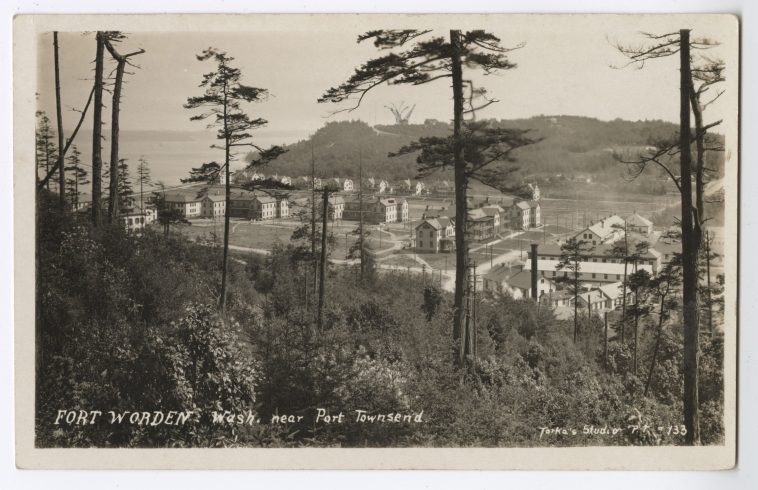The Apostrophe Blog
Several years back, in the pre-pandemic Before Times, I had the good fortune to work with Dana Levin, a talented poet and extraordinary teacher, during several July sessions I attended at the Port Townsend Writers’ Conference at Fort Worden State Park in Port Townsend, Washington. Some of you may recognize this place as the setting for many scenes in Taylor Hackford’s 1982 romantic drama, An Officer and a Gentleman which starred Richard Gere, Debra Winger, and scored an Oscar for Louis Gossett, Jr. The fort also happen to be where the esteemed poetry publisher, Copper Canyon Press, has its offices as well. It is a beautiful spot on the earth, very inspiring for a week of beachcombing, sunset walks, and writing poetry.
Our classes with Dana were rigorous, engaging, and offered much food for thought. One year, the topic was poetry and the unconscious; another year we focused on patterns we could discern as we wrote and revised our work. I scribbled so many notes during each session, trying to capture her wisdom about the art and craft of poetry. Below is something I compiled after returning home from the workshop; it is culled from class lectures, discussions, and critiques of the work we submitted during out week in that beautiful spot on the earth. To this day, when I am struggling to understand what I want to write about, what I think I am writing about, how I can better move forward with something I have been writing, when I need some new direction as to how to revise a poem, I turn to this list. There is generally always one if not a half-dozen questions I end up using to interrogate my work. I offer these up as a litany of wisdom you, too, can take away and use to serve your own creative-writing ends.
The public domain image above is a post card photograph of Fort Worden taken in November 1918.
A Checklist of Questions to Ask
about the poem—
- Why is this a poem?
- Where is the seed of the poem?
- To what does the poem respond?
- What makes the poem tick?
- What does the poem want to do in terms of effects?
- What is this poem about? Who is in it? What are they doing?
- Who are these characters in relationship?
- What is the relationship between the pronouns?
- What is lively and interesting about the poem?
- Where is the strong and interesting writing in the draft?
- Is there any kind of shapeliness coming forward via the foregrounding of a pattern?
- Linguistically, are there other options?
- What is the relationship between the title and the poem?
- What is the language palette of the poem?
- What has linguistic energy as far as word choice?
- What has tonal energy as far as sound?
- What is the overall effect of breaking the lines on a poem?
- What is the poem’s tonal range?
- Where is the dynamic moment in the poem?
- Where does the magic beyond the conventional occur?
- Where in the poem is the first moment of surprise? Of something new and interesting?
- What are the resistant moments in a poem?
- What experiences demand silence? pause? white space?
- What is a clear sense of the expression?
- Is there intent behind the page, the presentation?
- What in the poem requires re-entering and question asking? Further exploration?
- Where do images want to come forward into sharper focus?
- How might this poem get vivified?
- Is this poem a complete expression of what it sets out to do?
- What is the poem telling us it wants?
- Does the poem resolve, feel like a complete offering?
about the poet—
- When does the poet speak? Under what circumstances?
- Who am I?
- What do I like doing on the page?
- What do I need (to know how to do) to get to that?
- Does my inner experience have any value?
- How does the poet create a beat?
- How do I get more control over our sentences when I still need the rush of prose?
- How close do I want the reader to get to something in a poem?
- How close do I want to get to this?
- Where do I hinge too much on?
- In what ways can I follow linear structure to find strategic cuts?
- How do does a reader access “the almost” if I like to write mysterious poems?
as a reader—
- What is your aesthetic bias?
- What strikes you first about the poem?
- What degrees of listening do you need/want to bring to a poem?
- What does the poem want?
- How can you access what the poem wants?
- How do you receive this poem as a plot?
- What is the dynamic?
- What is the story?
- What do you receive?
- What strikes you, what are the wow moments?
- What is of interest? What feels vivid?
- How do you want to work toward discovery in a poem?
- What does the poem offer up to you in terms of plot?
- What are your receptions of the story in this poem?
- Where do you most engage with the poem?
- Can you see a way into strengthening this?
- Can you offer that way to the writer?
- What can we all learn here?
- How confused are you willing to be?
- Have you failed the poem or has the poem failed you?
- Acceptance News: Red Door Magazine - November 10, 2025
- A Day of Shadows and Sun - November 10, 2025
- For the love of a watery landscape… - November 9, 2025


